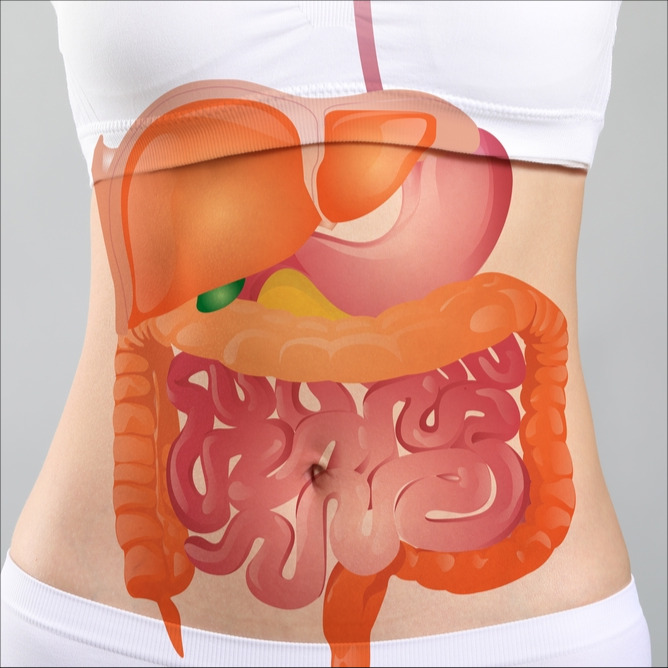
The digestive system
Basics and functions: A comprehensive introduction to the human digestive system
The human digestive system is a marvel of nature and plays a central role in our health and well-being. It is a complex network of organs and structures that enables the absorption, transport, processing and excretion of food . In this blog post, we dive deep into the world of the digestive system to understand its basics, functions and importance to the human body.
Digestion - The beginning of a fascinating journey
The journey of food begins in the mouth. Here, food is mechanically broken down by chewing with the teeth and chemically broken down by the enzyme amylase in saliva. Interestingly, saliva is not only there to moisturise the food. It also has antibacterial properties and thus protects the oral cavity from infections.
After the food has been ground into a pulp, it reaches the stomach via the oesophagus. The oesophagus is like a muscle channel, which contracts rhythmically to move the food towards the stomach - a process known as peristalsis.
The stomach - a chemical factory
Once in the stomach, the food is mixed with stomach acid . This acidic environment serves to break down proteins and kill potential pathogens. The stomach wall is protected by a thick layer of mucus so that it is not itself attacked by the acid . In addition to acids, the stomach produces enzymes such as pepsin, which helps break down proteins.
The small intestine duo: duodenum and ileum
After the stomach, the chyme reaches the duodenum, the first part of the small intestine. Here it is mixed with digestive juices from the pancreas and gallbladder. The pancreas supplies important enzymes that break down carbohydrates, fats and proteins into their basic building blocks. The bile from the gallbladder emulsifies fats so that they can be better absorbed.
The small intestine is lined with villi, which provide an enormous surface area and thus maximise the absorption of nutrients. These nutrients are then transported via the bloodstream to the cells where they are used for energy and growth.
The large intestine - water and electrolytes
What is left over from food that has not been digested and absorbed ends up in the large intestine. The main task of the large intestine is to absorb water and electrolytes from the undigested food pulp. This is crucial to protect the body from dehydration.
The large intestine is also home to an enormous amount of bacteria - the microbiome. These bacteria play a crucial role in the health of the digestive system and the whole body. They help digest certain food components, produce vitamins and protect against harmful microorganisms.
Excretion - the final stage of digestion
The last step in the digestive system is excretion. The remaining, thickened stool is stored in the rectum and finally excreted via the anus. This process is regulated by a complex nervous system that ensures that excretion takes place in a controlled manner and at the right time.
Nutrition and digestion - a symbiotic relationship
The efficiency of the digestive system is strongly influenced by the type of food ingested. Fibre-rich foods, such as wholemeal products, fruit and vegetables, for example, promote healthy bowel movements and intestinal flora. On the other hand, a diet rich in processed foods and sugar can put a strain on digestion and lead to various health problems.
Disorders of the digestive system
Unfortunately, the digestive system is not immune to diseases. Disorders such as irritable bowel syndrome, chronic inflammatory bowel diseases such as Crohn's disease and ulcerative colitis, as well as gastro-oesophageal reflux disease (GERD) can severely affect quality of life.
Conclusion - a system of inestimable value
The human digestive system is a complex and finely tuned system that is fundamental to our health. A balanced diet, sufficient exercise and the avoidance of harmful habits can help to keep this important system in good condition.
To keep the digestive system healthy, it is important to listen to our body's signals and seek medical advice early on if you have digestive problems. With a better understanding of how our digestive system works, we can make more conscious choices for our health and thus contribute to our overall well-being.
